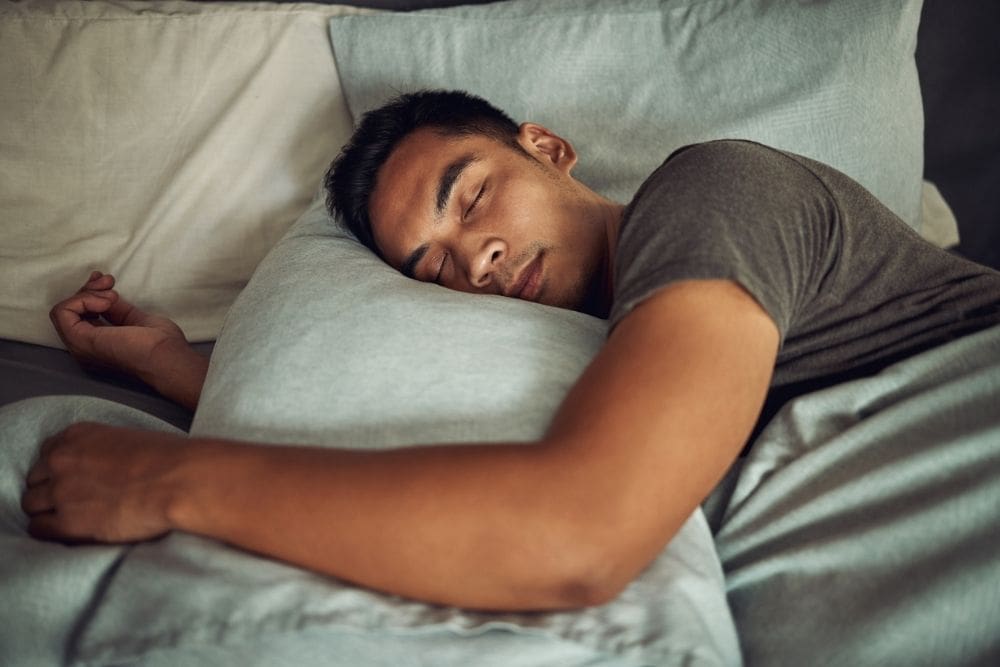Everyone talks about therapy. Medication. Mindfulness. But what if one of the most essential pieces of your mental health puzzle is something as basic—and as often neglected—as sleep?
Most adults need seven to nine hours of sleep per night to function at their best Nearly one-third of Americans regularly get less than six. Across the country, people are lying in bed not resting, but wrestling: with looping thoughts, restless energy, and the fog of exhaustion that never fully lifts.
Sleep isn’t a luxury. It’s the foundation of emotional resilience, mental clarity, and physical healing. And right now, for millions, that foundation is crumbling beneath them.
What Science Says About the Link Between Sleep and Your Mental Health
Sleep and mental health are deeply intertwined—connected in a cycle that’s both biological and psychological. Poor sleep doesn’t just make you groggy or cranky. It rewires your brain’s chemistry, disrupts emotional regulation, and leaves you more vulnerable to anxiety, depression, and other mental health disorders.
Sleep and Your Brain’s Emotional Circuitry
During deep sleep, your brain consolidates memories and processes emotions. The amygdala—the brain’s alarm center—becomes less reactive, while the prefrontal cortex (the part that is responsible for rational thinking and impulse control) becomes more balanced.
When you don’t get enough sleep, this system falls out of sync. The amygdala becomes hyperactive, leading to exaggerated emotional responses. You might cry more easily, snap at loved ones, or feel panicked over small problems—all because your brain hasn’t had a chance to reset.
Sleep and Mood Disorders
Studies show that people with insomnia are 10 times more likely to develop depression and 17 times more likely to experience significant anxiety symptoms. Chronic sleep deprivation alters neurotransmitter activity, especially serotonin and dopamine, which regulate mood and motivation. When sleep is disrupted, these chemical messengers are thrown off balance. This makes it harder to feel joy, interest, or energy.
Sleep also affects your hypothalamic-pituitary-adrenal (HPA) axis, which governs your stress response. Without restorative sleep, cortisol (your main stress hormone) stays elevated, keeping your body in a constant state of fight-or-flight. Over time, this leads to burnout, emotional numbness, and heightened anxiety—even if your days seem uneventful on the surface.
How a Lack of Sleep Affects Your Ability to Manage Psychiatric Conditions
People with bipolar disorder often experience dramatic changes in sleep patterns during manic and depressive episodes. Lack of sleep can even trigger manic states, making sleep hygiene a critical component of treatment. For those with PTSD, nightmares and fragmented sleep contribute to daytime hypervigilance and emotional dysregulation. In these cases, poor sleep isn’t just a symptom—it’s part of the problem.
Small Steps to Help You Get the Rest You Need
Improving your sleep doesn’t have to require a complete revamp of your lifestyle. What matters most is consistency. Focus on small changes that cue your brain and body to rest.
- Create a Relaxing Nighttime Routine
Your brain doesn’t just “turn off”—it needs gentle signals that it’s time to shift from alert to at ease. About an hour before bed, dim the lights and engage in quiet, screen-free activities.
- Listen to calming music, ambient sounds, or a guided sleep meditation using apps like Calm, Headspace, or Insight Timer.
- Do light stretching or a short yoga sequence.
- Take a warm bath or shower.
- Read a few pages of a calming book.
This routine doesn’t need to be long or elaborate. What matters is that it’s consistent and soothing—something that your nervous system begins to associate with sleep.
- Stick to a Sleep Schedule
Your body’s circadian rhythm tells you when to feel alert and when to feel sleepy. Disrupting that rhythm—by sleeping in on weekends, staying up too late, or napping excessively—can confuse your brain’s internal clock.
To support better rest:
- Set a consistent bedtime and wake time—even on weekends.
- Get exposure to natural sunlight early in the day to help reset your circadian rhythm.
- Avoid naps after 3 PM, especially if falling asleep at night is difficult.
This might be hard at first, but with consistency, your body will begin to adjust and falling asleep will start to feel easier.
- Address the Root of Your Racing Thoughts
Many people can’t fall asleep because their mind is running loops—overthinking the day, worrying about tomorrow, or replaying past stress. If this sounds familiar, try a “brain dump” journal next to your bed. Write down:
- What you’re worried about
- Tasks you need to remember
- Thoughts or emotions that feel heavy
Getting it out of your head and onto paper can relieve mental pressure. For deeper struggles with anxiety or intrusive thoughts, cognitive behavioral therapy for insomnia (CBT-I), is one of the most effective treatments available. It helps reframe unhelpful sleep-related thinking and address the behaviors that disrupt rest.
- Avoid Dopamine-Depleting Activities
Your brain needs balance. Late-night scrolling, binge-watching, and sugary snacks give quick hits of dopamine—your brain’s “feel good” chemical—but they often lead to emotional crashes, poor sleep, and next-day mood instability.
Try replacing dopamine-depleting activities with habits that support calm rather than overstimulation:
- Enjoy a cup of caffeine-free herbal tea like chamomile or lemon balm.
- Do five to 10 minutes of deep breathing or progressive muscle relaxation.
- Diffuse essential oils like lavender or sandalwood to help signal rest.
The goal is to choose soothing, steady sources of comfort rather than chaotic spikes that disrupt your natural sleep rhythm.
- Prioritize Sleep Like You Would a Doctor’s Appointment
Sleep is not a luxury. It’s a medical need. Poor sleep affects every part of your health—mental clarity, emotional resilience, immune function, and even how your brain regulates hunger and hormones.
To treat sleep as essential:
- Schedule your bedtime the way you would a therapy session or an important meeting.
- Let others in your life know when you’re unavailable in the evenings.
- Set an alert on your phone to serve as a gentle reminder that it’s time to begin your wind-down routine.
Contact Us Today for a Free, Confidential Assessment
If your nights are full of tossing and turning and your days are foggy with exhaustion, it’s time to reach out. The compassionate care team at Raleigh Oaks Behavioral Health in Garner, North Carolina, offers 24/7 confidential assessments and a full spectrum of care—because everyone deserves to feel rested, restored, and ready to face each new day. Contact us today to begin your journey toward better sleep and a better you.





